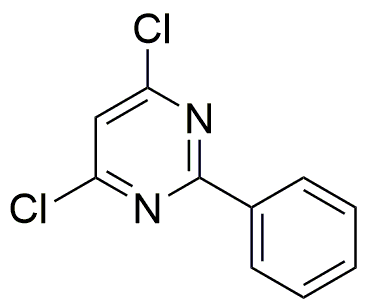Fenclorim is widely utilized in research focused on:
- Agriculture: As a selective herbicide, it effectively controls a variety of broadleaf weeds in crops, enhancing yield and quality for farmers.
- Plant Protection: It is used in formulations that protect crops from weed competition, allowing for better growth and productivity in agricultural practices.
- Environmental Studies: Researchers utilize fenclorim to study its environmental impact and behavior in soil and water, contributing to sustainable agricultural practices.
- Phytotoxicity Research: It serves as a model compound in studies assessing the phytotoxic effects of herbicides, helping to develop safer alternatives for crop management.
- Formulation Development: The compound is valuable in developing new herbicide formulations that require specific properties for targeted weed control, offering advantages over traditional herbicides.
Informations générales
Propriétés
Sécurité et réglementation
Applications
Fenclorim is widely utilized in research focused on:
- Agriculture: As a selective herbicide, it effectively controls a variety of broadleaf weeds in crops, enhancing yield and quality for farmers.
- Plant Protection: It is used in formulations that protect crops from weed competition, allowing for better growth and productivity in agricultural practices.
- Environmental Studies: Researchers utilize fenclorim to study its environmental impact and behavior in soil and water, contributing to sustainable agricultural practices.
- Phytotoxicity Research: It serves as a model compound in studies assessing the phytotoxic effects of herbicides, helping to develop safer alternatives for crop management.
- Formulation Development: The compound is valuable in developing new herbicide formulations that require specific properties for targeted weed control, offering advantages over traditional herbicides.
Documents
Fiches de données de sécurité (FDS)
La FDS fournit des informations de sécurité complètes sur la manipulation, le stockage et l’élimination du produit.
Spécifications du produit (PS)
Le PS fournit une description complète des propriétés du produit, notamment sa composition chimique, son état physique, sa pureté et les exigences de stockage. Il détaille également les plages de qualité acceptables et les applications prévues du produit.
Certificats d'analyse (COA)
Recherchez des certificats d'analyse (COA) en saisissant le numéro de lot du produit. Les numéros de lot et de lot se trouvent sur l'étiquette d'un produit, après les mots « Lot » ou « Lot de fabrication ».
Numéro de catalogue
Numéro de lot/série
Certificats d'origine (COO)
Ce certificat d'exploitation confirme le pays dans lequel le produit a été fabriqué, et détaille également les matériaux et composants utilisés et s'il est issu de sources naturelles, synthétiques ou autres sources spécifiques. Ce certificat peut être requis pour les douanes, le commerce et la conformité réglementaire.
Numéro de catalogue
Numéro de lot/série
Fiches de données de sécurité (FDS)
La FDS fournit des informations de sécurité complètes sur la manipulation, le stockage et l’élimination du produit.
DownloadSpécifications du produit (PS)
Le PS fournit une description complète des propriétés du produit, notamment sa composition chimique, son état physique, sa pureté et les exigences de stockage. Il détaille également les plages de qualité acceptables et les applications prévues du produit.
DownloadCertificats d'analyse (COA)
Recherchez des certificats d'analyse (COA) en saisissant le numéro de lot du produit. Les numéros de lot et de lot se trouvent sur l'étiquette d'un produit, après les mots « Lot » ou « Lot de fabrication ».
Numéro de catalogue
Numéro de lot/série
Certificats d'origine (COO)
Ce certificat d'exploitation confirme le pays dans lequel le produit a été fabriqué, et détaille également les matériaux et composants utilisés et s'il est issu de sources naturelles, synthétiques ou autres sources spécifiques. Ce certificat peut être requis pour les douanes, le commerce et la conformité réglementaire.


